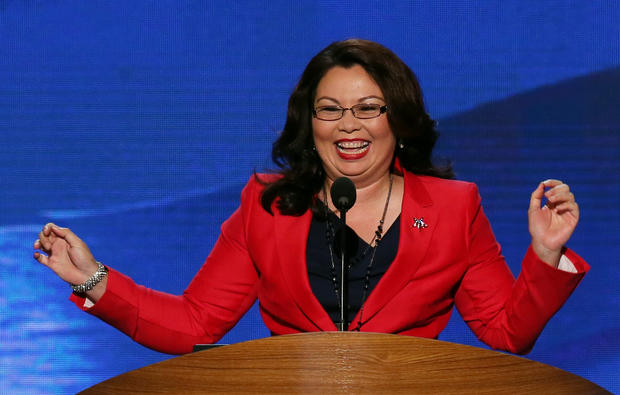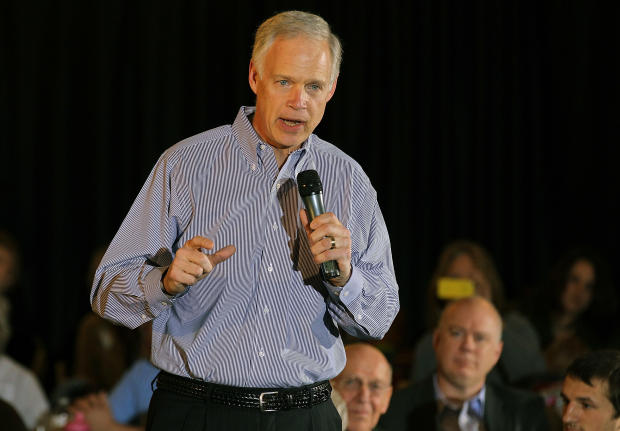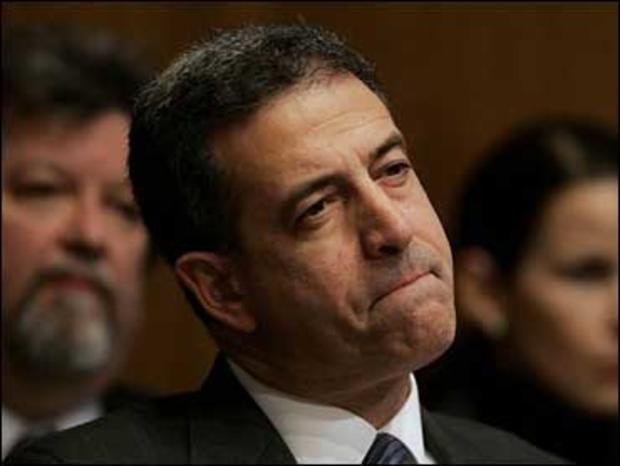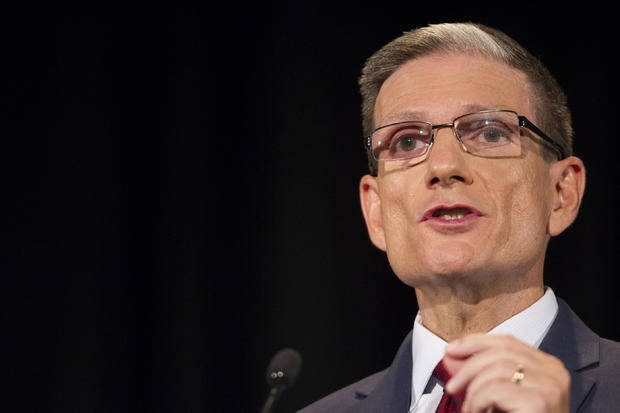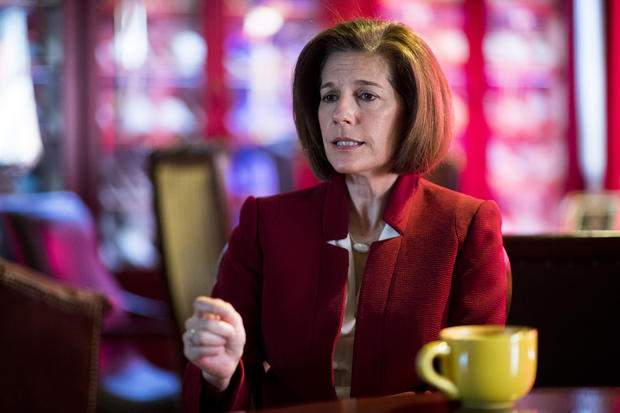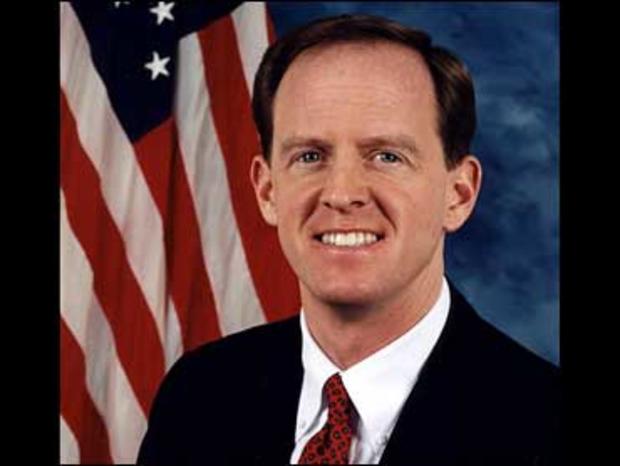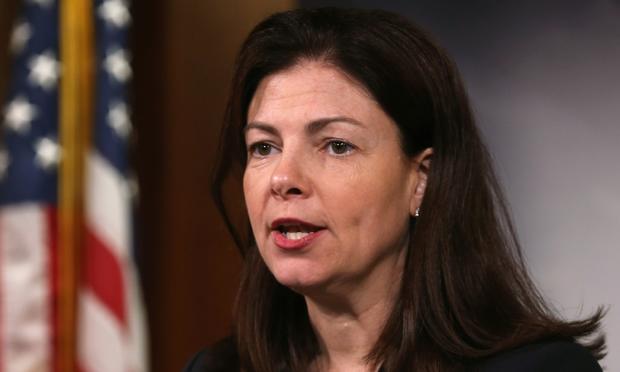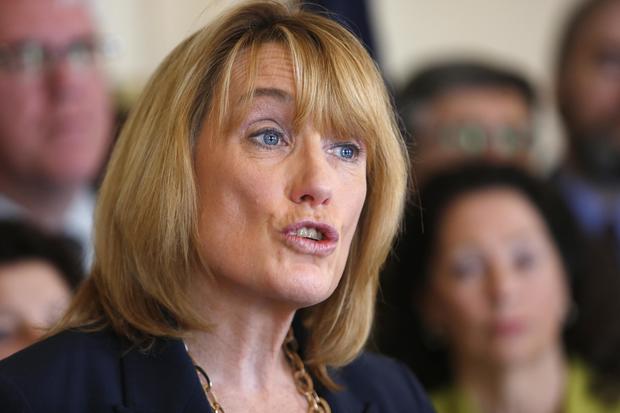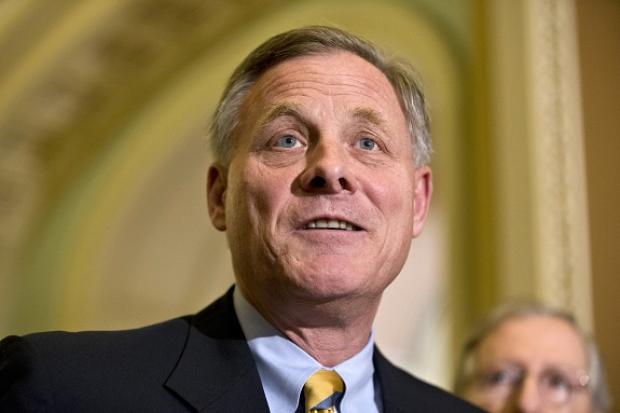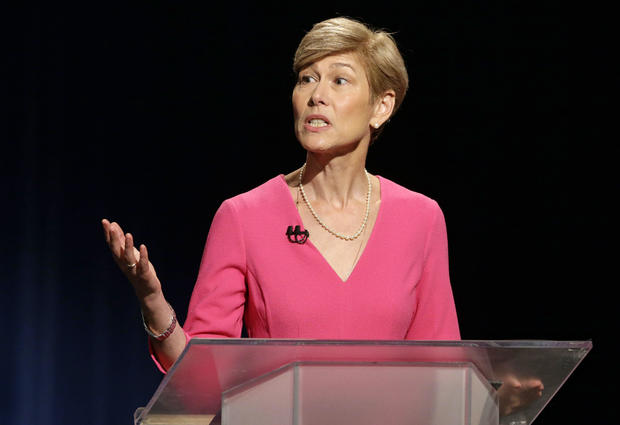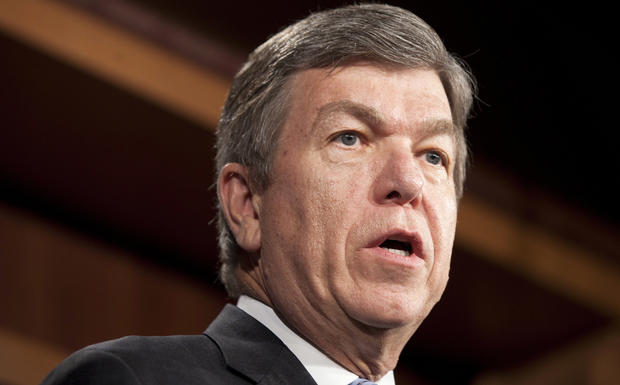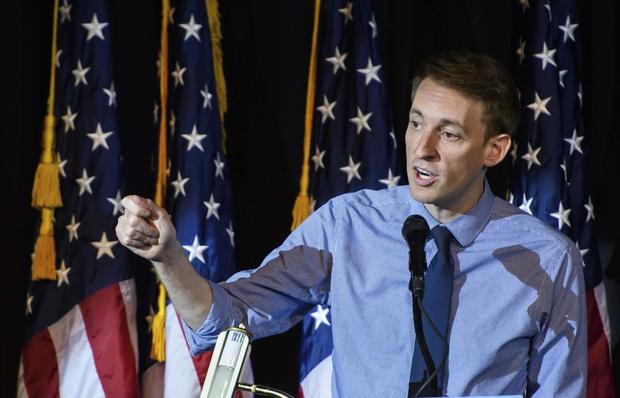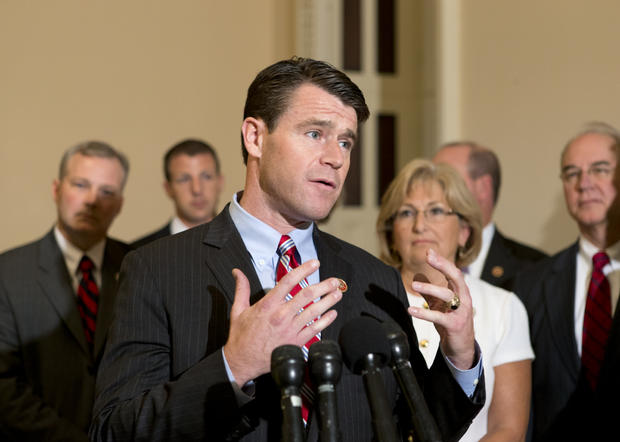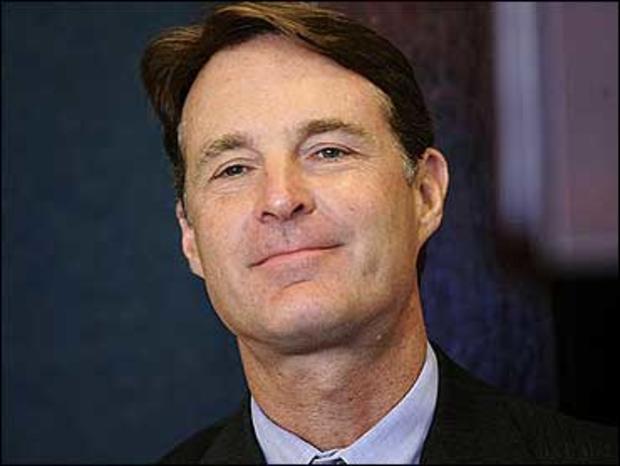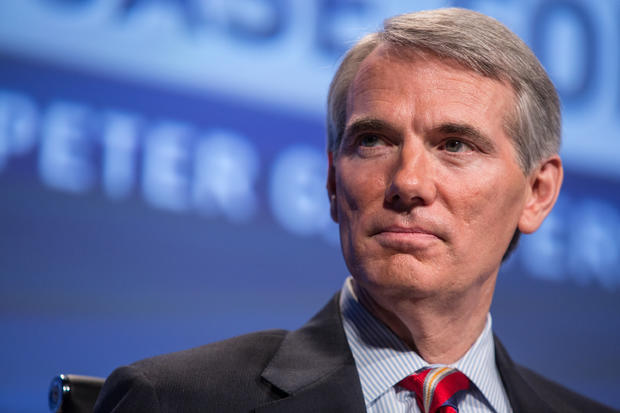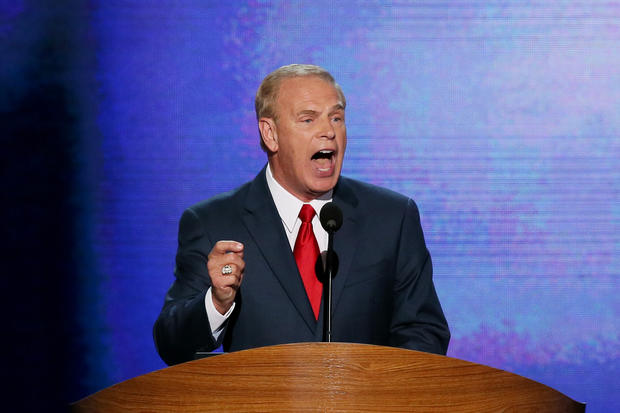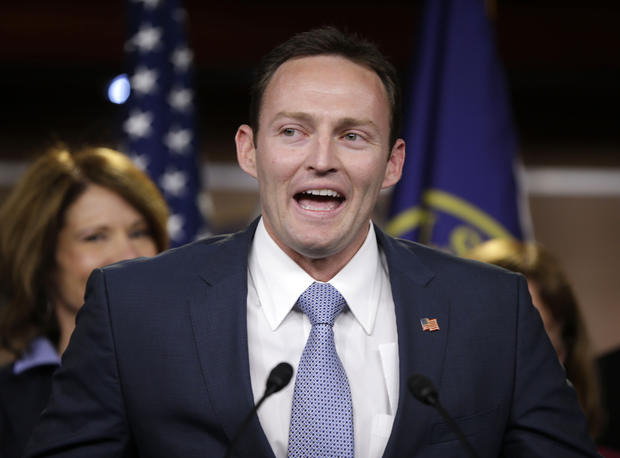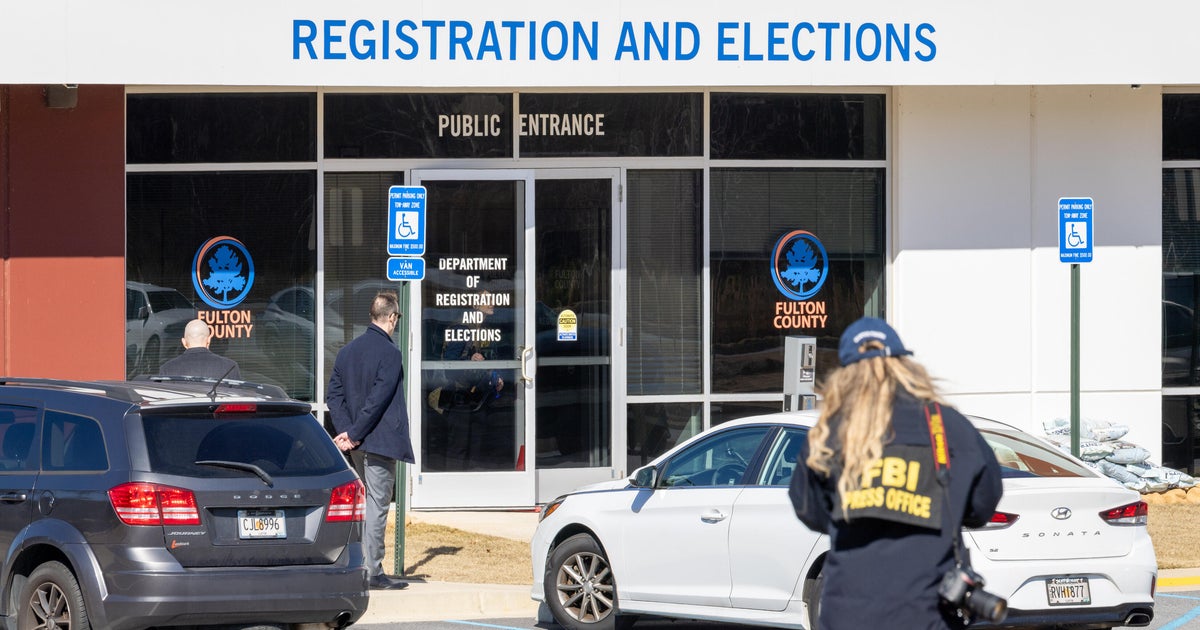The 2016 Battle for the Senate
While Hillary Clinton and Donald Trump battle for the presidency, Democrats and Republicans are fighting for control of the Senate. Republicans are defending 24 seats compared to Democrats’ 10 seats.
Donald Trump’s controversial comments about minorities and women, as well as his brash behavior on the campaign trail have struck fear into those running lower on the ballot. But the late October development that the FBI is looking at a new batch of emails that may be related to the Clinton investigation completed in July has injected new hope into Republicans down-ballot. In early October, some of the most vulnerable Republicans had distanced themselves from the top of GOP ticket following the timely-- and unexpected--release of a 2005 video in which Trump spoke crudely of women.
If Clinton becomes the next president of the United States, Democrats need four seats to win control of the Senate (Vice President Tim Kaine would be the 51st vote); five, if Trump wins.
Here’s a look at the closest Senate races that could hand Democrats the majority.
ILLINOIS: MARK KIRK (R) (INCUMBENT)
Mark Kirk, elected to the Senate in 2010, formerly represented Illinois in the House. He initially endorsed Donald Trump, but withdrew his support over several of Trump’s controversial comments. Kirk was the first GOP incumbent in the Senate to run an ad attacking Trump.
He has several moderate, even liberal, positions -- he supports abortion rights, same-sex marriage and he believes that climate change is real. Kirk supports background checks, has voted for an assault weapons ban, and he’s the only GOP senator to get an “F” from the NRA. And he was one of the few Republicans to meet with Mr. Obama’s nominee to replace Antonin Scalia on the Supreme Court, Merrick Garland.
He serves on four congressional committees: Committee on Appropriations, Committee on Banking, Housing and Urban Development, Committee on Health, Education, Labor and Pensions, and the Special Committee on Aging.
ILLINOIS: REP. TAMMY DUCKWORTH (D)
VERDICT: CBS News projects a win for Duckworth, unseating Sen. Kirk
Kirk’s Democratic rival is also a military veteran--receiving the Purple Heart after her Black Helicopter was hit by a rocket propelled grenade, which caused her to lose both her legs and partial use of her right arm. She was the first female double amputee of the war. As a result, she has been an active voice for improving the lives of veterans.
In 2009, President Obama nominated Duckworth to be assistant secretary of Veterans Affairs. She was elected to represent Illinois in Congress in 2013.
Duckworth supports abortion rights and Obamacare, comprehensive immigration reform and increased admission of Syrian refugees into the U.S.
EARLY VERDICT: CBS News race rankings suggest that Illinois leans Democratic, and in late October, the RealClearPolitics average for the race shows her with an advantage over Kirk.
WISCONSIN: SEN. RON JOHNSON (R-INCUMBENT)
VERDICT: CBS News projects a win for Sen. Johnson
Sen. Ron Johnson was elected in the 2010 Republican wave. The first-time politician was formerly the CEO of a polyester and plastic manufacturing company. The far right politician continues to stick with Donald Trump despite the concern that the Republican nominee’s demeaning comments about women could hurt down-ballot races.
Johnson is one of four Republicans leading a bipartisan effort to deregulate corporate America--legislation that would undermine the authority of agencies overseeing banks, consumer protections, nuclear safety, and workplace rights, to name a few. Besides prioritizing business-friendly regulatory and budget issues, Johnson is also a vocal proponent of deploying American troops to Iraq and Syria to defeat ISIS.
He is the Chairman of the Homeland Security and Governmental Affairs Committee, and also serves on several other committees that oversee the budget, foreign affairs, commerce, science and transportation.
WISCONSIN: RUSS FEINGOLD (D)
Feingold previously served in the Senate from 1993 - 2011. He was defeated by Johnson in 2010 by about four percent. After nearly two decades as a senator, Feingold became a university professor and served as the U.S. Special Envoy for the Great Lakes Region of Africa and the Democratic Republic of Congo at the State Department.
Like progressives Sen. Bernie Sanders and Sen. Elizabeth Warren, Feingold is an outspoken critic of current campaign finance laws and Wall Street deregulation. Feingold’s legacy, after serving in the Senate for nearly two decades, became closely associated with his opposition to NAFTA. He’s also known as the co-sponsor of the McCain-Feingold Act, which aimed to regulate the way political campaigns were financed.
In 2012, Feingold authored a book entitled “While America Sleeps, A Wake Up Call For The Post 9/11 Era,” in which he explains what missteps occurred after the attack on the World Trade Center.
EARLY VERDICT: CBS News race ratings describe Wisconsin as leaning Democrat. RealClearPolitics’ polling average in late October showed Feingold leading Johnson, although recent polls have shown the incumbent regaining some support.
NEVADA: REP. JOE HECK (R)
Sen. Harry Reid’s retirement this year opened up a seat in Nevada, and one of the contenders to replace him is Republican Joe Heck, a physician and U.S. Army Reserve brigadier general who was elected to Congress in 2010, where he serves on the Armed Services Committee and the Education and Workforce Committee. Heck was a Nevada state senator from 2004 until 2008.
Heck had endorsed Trump, but he rescinded his endorsement after the 2005 “Access Hollywood” video of Trump’s lewd comments emerged in early October. Before that, he had said he was comfortable with Trump having access to the nuclear codes. As recently as mid-October Heck said, “I want to support him,” but said Trump has to change his tone.
Heck is an opponent of abortion, and has voted to defund Planned Parenthood. He supports a path to legalization for undocumented immigrants--with tougher borders and identity checks--but also joined a group of Republicans that opposed President Obama’s efforts to protect undocumented children and their parents from deportation.
Heck put his background in medicine to use following 9/11. Two days after hijackers crashed into the World Trade Center, Heck traveled to Ground Zero in New York to provide medical assistance to federal agency responders.
NEVADA: CATHERINE CORTEZ MASTO (D)
VERDICT: CBS News projects a win for Mastro
The granddaughter of a Mexican immigrant, Masto could be the first Latina to enter the Senate if elected. She previously served two terms as Nevada’s Attorney General, from 2007-2015, focusing on combating drug use and its distribution and also took steps to strengthen laws preventing sex trafficking and violence against women.
In 2010, she defied the state’s Republican governor who, along with several attorneys general, attempted to block an expansion of Medicaid as part of the Affordable Card Act.
The left-leaning environmental advocacy group, the League of Conservation Voters, credited Masto with helping seal the deal on major environmental battles.
Following Minority leader Harry Reid’s annoucement that he would retire after 30 years in public office, he personally selected Masto to run for his seat.
EARLY VERDICT: Nevada edges Republican, according to CBS News race ratings. RCP’s polling averages in late October also gave Heck the edge in this race.
PENNSYLVANIA: SEN. PAT TOOMEY (R) (INCUMBENT)
The senate race in Pennsylvania is widely considered one of the biggest tossups this election. Incumbent Pat Toomey was elected to the Senate in 2010, on the strength of his dedication to financial services and budget issues. In 2012, he helped write and enact the JOBS Act, which targeted regulatory burdens on small and medium-sized businesses.
Toomey is trying to appeal to moderates, and it’s unclear whether he’ll vote for Trump -- he has said he’s not endorsing him and remains “unpersuaded,” though he also says he “could never” support Hillary Clinton. Toomey was one of two Republicans to join dozens of Democrats who lobbied for reasonable gun control legislation during a 15-hour senate filibuster led by Sen. Chris Murphy.
He currently serves on the Finance, Banking, and Budget committees, and has previously served on the Joint Select Committee on Deficit Reduction.
PENNSYLVANIA: KATIE MCGINTY (D)
Democratic challenger Katie McGinty was most recently chief of staff to Governor Tom Wolf in 2015. She has dedicated most of her career to environmental issues, previously serving as Pennsylvania’s environmental protection secretary from 2003-2008. In 1993, she became the first woman to be appointed as chair to the White House Council on Environmental Quality, under President Clinton.
Her senate agenda includes increasing the minimum wage to $15 per hour, defending abortion rights, expand child care credits, cut drug pricing, and improve health care.
McGinty is one of ten children raised by working class parents in Philadelphia. Her father was a policeman and her mother was a restaurant hostess.
EARLY VERDICT: CBS News race ratings call Pennsylvania a tossup. RealClearPolitics also rates it a tossup, but shows McGinty leading by 5 points in the week before the election.
NEW HAMPSHIRE: SEN. KELLY AYOTTE (R) (INCUMBENT)
Ayotte is seeking her second senate term -- she’s another GOPer elected in the 2010 wave and faces a tough race against New Hampshire Gov. Maggie Hassan. Before her election, Ayotte served as New Hampshire’s attorney general from 2004 until 2009 and was the first woman to fill the job. Following the release of video showing Trump making sexually demeaning comments towards women, she withdrew her endorsement of the GOP candidate.
Ayotte is considered to be moderate. She backed the president on trade, but opposed the Iran deal. Ayotte has supported efforts to combat climate change, and she voted for comprehensive immigration reform. She has also voted to repeal Obamacare, defund Planned Parenthood, and ban late-term abortions, and Ayotte opposes the Iran deal.
She serves on the Armed Services, Budget, Commerce, Homeland Security and Governmental Affairs, and Small Business and Entrepreneurship Committees. She also chairs the Armed Services Subcommittee on Readiness and the Commerce Subcommittee on Aviation Operations.
NEW HAMPSHIRE: GOV. MAGGIE HASSAN (D)
Hassan has served as New Hampshire’s governor since 2012 and before that served in the state senate from 2005 - 2010. Like Ayotte, she is popular in the state, and in 2014, she won re-election as governor in a year when many Democrats lost their races.
As governor, Hassan has worked to lower college costs, she expanded Medicaid and cut business taxes. She supports Obamacare and the Iran deal and favors background checks.
She says her son, Ben, who has cerebral palsy, is the reason she entered politics. She began with the fight to ensure access to education and accommodation to the needs of disabled children.
EARLY VERDICT: CBS News race ratings rank New Hampshire as a “toss up,” as does RealClearPolitics.
NORTH CAROLINA: SEN. RICHARD BURR (R) (INCUMBENT)
VERDICT: CBS News projects a win for Sen. Burr
Burr is running for his third term, serving in the U.S. Senate since 2005. Prior to becoming senator, he served five terms in the House. Burr has wavered in his support of Donald Trump--first admonishing him after the the release of the 2005 “Access Hollywood” video for his lewd comments about women. When the subject surfaced during a state debate, Burr defended Trump. He said, “I take him at his word: He said he didn’t do it.”
Burr supports sections of HB2, a piece of legislation that recently came under fire in the state for preventing transgender people the right to choose which public facilities to use, including bathrooms.
He’s the chairman of the Senate Intelligence Committee as well and has been an advocate for veterans and military families. During his tenure, he has fought for legislation that would provide relief to Gold Star families, improve health care access for veterans, and closed a loophole that allowed sex offenders prosecuted under the military justice system to evade registration with the National Sex Offender Registry.
Burr proudly boasts of his role in blocking a federal judge’s seat in North Carolina’s eastern district for nearly 11 years--the longest in the nation’s history. He already promised that if Hillary Clinton wins the White House he would do everything he can to ensure Supreme Court seat remains vacant for four years.
NORTH CAROLINA: DEBORAH ROSS (D)
From 2003-2013, Deborah Ross served in North Carolina’s State House. During the financial crisis, Ross helped pass measures to protect families against predatory lending practices and foreclosures. She has also served as executive director of the North Carolina ACLU.
Ross supports Obamacare, additional regulation of Wall Street, tougher environmental laws, increased corporate taxes and preserving the Iran nuclear deal.
Ross stepped up to the plate when better-known Democrats refused to run for the senate seat.
EARLY VERDICT: According to CBS News, North Carolina is a tossup state. The latest RCP average puts Burr one point ahead of Ross.
MISSOURI: SEN. ROY BLUNT (R-INCUMBENT)
VERDICT: CBS News projects a win for Sen. Blunt
Sen. Roy Blunt is seeking his second term in the U.S. Senate having been elected in 2010. Previously, Missourians elected Blunt to Congress seven times, where he served as majority whip.
Though a newcomer to the Senate in 2010, Blunt quickly rose to several leadership positions. Currently, he serves as the vice chairman of the Senate Republican Conference, Chairman of the Senate Rules committee, and Chairman of the Appropriations Subcommittee on Labor, Health and Human Services, Education, and Related Agencies.
A few of Burr’s top legislative accomplishments include helping pass a transportation funding bill, expanding mental health coverage, and strengthening federal response to child abuse.
He supports Donald Trump, even after many of his colleagues dropped him for his demeaning comments toward women.
MISSOURI: JASON KANDER
Jason Kander has served as Missouri’s secretary of state. Prior to that, he served four years as in the State House, and deployed to Afghanistan as a military intelligence officer.
During Kander’s tenure as secretary of state, he cut Missouri’s budget by over $1 million, and positions himself as a moderate Democrat.
He favors abortion rights but also prohibitions on federal dollars to fund them. He also opposes the closure of Guantanamo Bay as well as President Obama’s use of executive authority to ease the path for undocumented immigrants to obtain American citizenship.
Kander’s senate campaign gained traction in September when he released one of the best ads of the cycle -- on gun control. In it, Kander assembles an assault rifle while blindfolded and explains his support for firearms background checks.
EARLY VERDICT: According to data compiled by CBS News, Missouri “edges Republican,” but RCP most recently averaged Blunt as having about a 1.5 point lead.
INDIANA: TODD YOUNG (R)
VERDICT: CBS News projects a win for Young
Hoping to take retiring Republican Sen. Dan Coats’ seat is Indiana Rep. Todd Young.
In the House, Young has supported free trade agreements to boost Indiana’s manufacturing and agricultural sectors. He also help write a federal budget designed to cut deficit spending by $6 trillion over the next 10 years.
Young is a Naval Academy graduate who was commissioned into the Marine Corps. He served 10 years and was honorably discharged as a Captain. He supports GOP nominee Donald Trump.
He serves on the House Ways and Means Committee, the House Armed Services Committee and the House Budget Committee.
INDIANA: EVAN BAYH (D)
Evan Bayh has a long record in public service, having served as Indiana’s governor for two terms, its secretary of state, and U.S. senator from 1999 to 2011.
Bay retired from the Senate in 2010, which left the seat open for Republican Dan Coats. Now he’s retiring and Bayh wants the seat back. Opponents criticize Bayh for using his last year in office to land a lucrative job with a lobbying firm.
During his 12 years as senator, Bayh served on several committees, including the Banking Housing and Urban Affairs, Armed Services, the Select Committee on Intelligence, the Special Committee on Aging, and the Small Business Committee.
EARLY VERDICT: CBS News ranks the race in Indiana as a tossup. And, according to Real Clear Politics, Bayh averages at 43.8 percent in the polls compared to Young’s 41.5 percent.
OHIO: SEN. ROB PORTMAN (R) (INCUMBENT)
VERDICT: CBS News predicts a win for Sen. Portman
Portman was elected in 2010, winning 82 of Ohio’s 88 counties. The junior senator from Ohio served in the House and has also served as U.S. trade representative and White House OMB director.
He’s considered to be moderate, thoughtful and bipartisan. He’s been a strong defender of trade deals and their benefits for Ohio, and he’s also worked with Sherrod Brown on job creation in Ohio. In 2013, he was the first GOP senator to support same-sex marriage -- as a result of the revelation that his son is gay. He also enjoys high approval ratings, above 50 percent in a Monmouth poll from earlier this month.
Portman and outside groups have outspent opponent Ted Strickland by tens of millions so far -- by the end of June, the Washington Post noted, they’d spent $31.7 million, compared to the $11.4 million spent by Strickland and Democratic groups. He also rejected Trump’s candidacy after the lewd “Access Hollywood” tape emerged.
He serves on the Finance, Homeland Security and Governmental Affairs, Energy and Natural Resources, and Budget Committees. As senator, he authored a plan for Ohio to create jobs through tax and regulatory reform, as well as skills training.
OHIO: TED STRICKLAND (D)
Strickland, the Democratic challenger, is a former Ohio governor and represented Ohio for 12 years in Congress. Strickland was governor from 2007-2011, squarely in the worst of the global financial crisis, when Ohio’s unemployment rate doubled and the state lost almost 370,000 jobs. He stopped an income tax refund in order to make up for a budget shortfall, and he also had to reduce the rainy day fund from $1 billion to 89 cents to balance the state budget.
Strickland also signed a renewables standard that mandated that 25 percent of Ohio’s electricity would be produced by renewables by 2025.
His race against incumbent Portman is decidedly uphill -- he’s outmatched on ad spending. And he’s only advertising in Cleveland and Columbus, two out of the state’s 12 media markets. According to Cleveland.com, he’s only reaching, at most, 60 percent of Ohioans.
EARLY VERDICT: According to polling data compiled by CBS News, Ohio leans Republican. RCP’s averages give Portman a double-digit lead over Strickland.
FLORIDA: SEN. MARCO RUBIO (R) (INCUMBENT)
VERDICT: CBS News projects a win for Rubio
Soon after he dropped his presidential bid, Rubio announced that he would seek reelection, reversing an earlier decision not to run. The senator once described Trump as a “con artist” but now endorses him for president.
Rubio, the son of Cuban immigrants, was elected on the Tea Party wave of 2010, and he enjoys popularity with Hispanic voters and conservative voters.
He is a strict opponent of abortion, even in cases of rape and incest. Rubio also made headlines when he announced that he is against abortions for women who are infected with Zika virus, which causes microcephaly in babies.
With rising sea levels near Miami, Rubio continues to argue that climate change is not a man-made threat. He has also called for the repeal of Obamacare. On immigration, he supported the bipartisan comprehensive immigration reform deal but walked away from it afterwards, as well as securing the Mexican-U.S. border with options for what he has called a “very long path” to citizenship.
He serves on Commerce, Science and Transportation, Foreign Relations and Select Intelligence committees. Before his election to the Senate, he served as speaker of the Florida House of Representatives from 2000 to 2008.
FLORIDA: REP. PATRICK MURPHY (D)
Rep. Murphy is challenging Rubio in a state that edges Republican, according to CBS News race ratings. He currently represents Florida’s 18th congressional district and serves on the House Committee on Financial Services and the House Select Committee on Intelligence. Murphy is also the co-founder and co-chair of the United Solutions Caucus, a bipartisan group of junior lawmakers who collaborate on moving economy forward.
Murphy has both progressive and conservative stances, supporting a $15 per hour minimum wage and reductions on deficit spending. He’s considered to be a moderate Democrat. He also supports comprehensive immigration reform.
Despite Rubio’s marginal lead, Murphy has received the endorsements of nearly every major newspaper in Florida.
EARLY VERDICT: According to RCP’s poll averages, Rubio has about a 5 to 6 point lead over Murphy.
ARIZONA: SEN. JOHN MCCAIN (R) (INCUMBENT)
VERDICT: CBS News projects a win for McCain
McCain is defending a seat he’s held for five terms. Though he’s lead in polling, he has also called this the “race of his life” because of the potentially damaging effects of Trump at the top of the ticket, whom he has publicly clashed with throughout the campaign, and now says he will not support after the release of a 2005 recording of Trump’s lewd remarks about women.
Even before that, the two had a fraught relationship. In July, he skipped the Republican National Convention where Trump accepted the Republican presidential nomination. And last year, Trump had said McCain, who served 5 1/2 years in a POW camp during Vietnam, was only a hero because he’d been imprisoned -- “I like people who weren’t captured,” Trump said.
McCain chairs the Armed Services Committee and is a member of the committees on Homeland Security and Governmental Affairs, and Indian Affairs.
McCain has advocated campaign finance reform for years and co-sponsored the McCain-Feingold law that regulated campaign spending for years before it was essentially gutted by the Supreme Court’s Citizens United decision. He also spearheaded the “Gang of Eight” which worked to enact comprehensive immigration reform during the Bush administration.
The legislation, however, was blocked by House Republicans. McCain was also one of the few politicians who supported a surge in Iraq in 2007. The counterinsurgency effort was hailed a success later by President Obama and Secretary of State Hillary Clinton, who initially opposed the mission.
In 2008, McCain launched a failed presidential bid with Alaska Gov. Sarah Palin.
ARIZONA: REP. ANN KIRKPATRICK (D)
Kirkpatrick currently serves as a member of the House representing Arizona’s 1st district. During her two terms, she worked on bills that benefit veterans and Native American tribes. Her bipartisan legislation also helped enact a water settlement that is helping Arizona’s rural, tribal and urban communities.
She has also worked on a bipartisan measure to revitalize jobs in the mining industry across the state. Prior to her two terms in the House, she served on Arizona’s House of Representatives from 2005 until 2007.
Kirkpatrick advocates for college affordability, equal rights and gender equality, work permits, security against deportation for undocumented children brought into the U.S, and free trade and commerce with Mexico.
EARLY VERDICT: Polls favor McCain. According to RCP’s average of recent polls, McCain has a high single-digit lead over Kirkpatrick.


